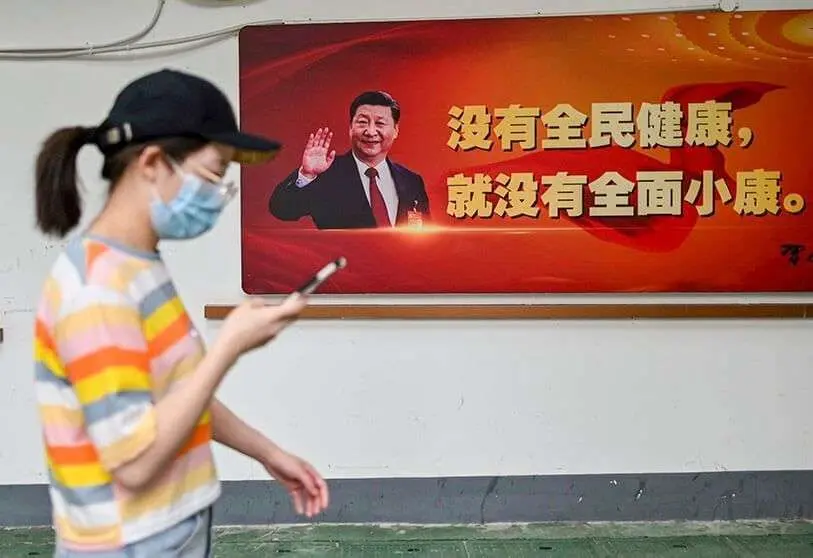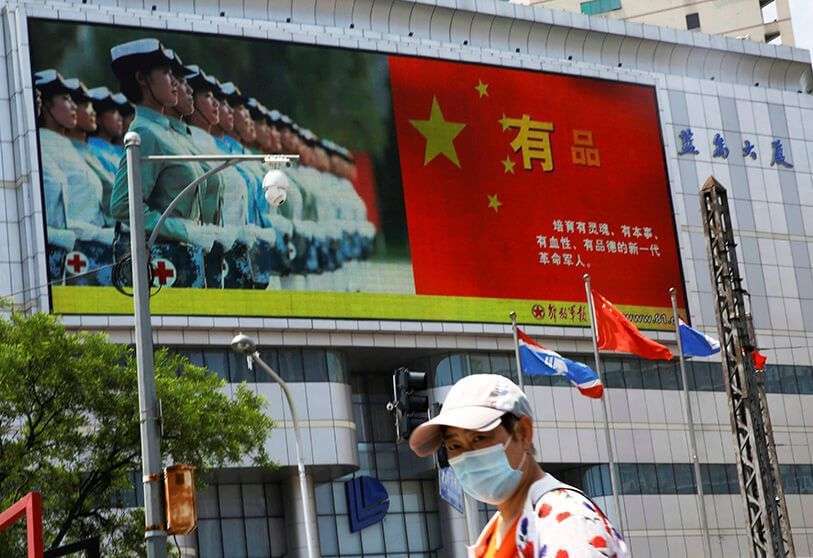A crown and a virus

China had been dragging along several complicated situations: the protests in Hong Kong, the trade war, slower economic growth and, as if that were not enough, the coronavirus was presented by many as their Chernobyl. The emergence of this virus shows once again the lack of transparency exhibited by a state that silences doctors and expels journalists. Meanwhile, Taiwan stands as an example of containment of COVID-19.
Many countries could review their economic relations with China, while many others will know how to take direct or indirect advantage. Indonesia, one of its main trading partners, is already looking for investment elsewhere for the projection of its new capital. On the other hand, debt difficulties along the Belt and Road Initiative may be a serious threat to China's financial sustainability and to the operations of its companies abroad.
Nevertheless, China, with a little propaganda, managed to counteract a facet of effectiveness in terms of controlling the virus and inaugurate a soft power with its typical stamp: a lot and cheap. The world is filled with masks, defective material and incontrovertible data: cheap power expands from the economy to politics, although it can become onerous if it imitates the passage from low salaries and affordable products to infinite investment and high interest rates.
However, Beijing's priorities are to maintain national unity under the undisputed leadership of the Communist Party in order to continue its economic expansion. Thus, international image is an issue only if it ensures such priorities by providing a predominant place within global supply chains, i.e. its commercial Lebensraum.
An example of the little interest or capacity to acquire total Western-style hegemony can be seen in their simultaneous relations with Iran and Saudi Arabia. Tehran needs and does not find a self-sacrificing ally power in the style of its American rival. However, imperialist sacrifice is less likely when one is convinced of being the center of the world and commercial gains cloud one's vision. Only in the stubbornness of the South China Sea can an openly dominant attitude be discerned.

Even with economic consequences looming large among oil, the chronicle of the decline of American supremacy is far from being realized. However, there is something useful in the stubborn warning of the lightweight analysts of virtual shells; the American empire needs to be preserved through the rest and gymnastics that a worthy adversary can offer, and to some extent that motivates their actions. Paradoxically, the American containment of Chinese growth is accompanied by stinging.
Then, Washington, trapped in its hegemony, exercises its troops in Europe, prowls around the coasts of Venezuela, maintains tension with Iran, advances in Greenland, encourages ASEAN, expands the Quad, scavenges with the "Five Eyes" alliance, strengthens ties with Taiwan, discredits the WHO, defames Beijing, transits the South China Sea and crosses the Taiwan Strait. The alleged American withdrawal and its evident omnipresence would seem to incubate an inciting confusion for its alleged challengers.
In any case, the possible acceleration or slowing down of this contradictory process of potentiation and blockage rubs reality until it sparks a caution that cannot be found in the time of the first viralized virus, which, doubly spread, exacerbates and limits both the pandemic and the pandemonium. In this scenario, it is necessary to keep untimely concepts like Cold War, Chernobyl moment, Suez moment or Thucydides' trap.
Beijing is halfway between the internal fear of the Tocqueville effect and the external mirror that returns a huge image of a paper tiger (although in its accumulation in the form of paper money or paper weight and counterweight, paper is still paper). The American challenge has two not very practicable answers: either it retracts or it becomes more aggressive. Nevertheless, China presents its own challenge to the United States, because, in spite of not irradiating proselytism in the Western way, under its unstoppable materialism there is something of that cultural universality that Henry Kissinger observes in the history of the Kingdom of the Middle.
Zbigniew Brzezinski did not envision China as a world leader, but he acknowledged an ambition laden with prudence and patience; the Carter administration's National Security Advisor captures this in this plea from a Chinese public figure to an American visitor: "But please do not allow America to decline too quickly.
China exports a virus and, although its hard power is so soft and its soft power so rigid, it realizes how decisive it is; the United States, a superpower unmatched in human history, imports it and remembers that it has weaknesses. The coronavirus leaves a lesson for both titans: East and West are too close to accept that silk is inexorably draining and pearls are getting stuck in bottlenecks.

